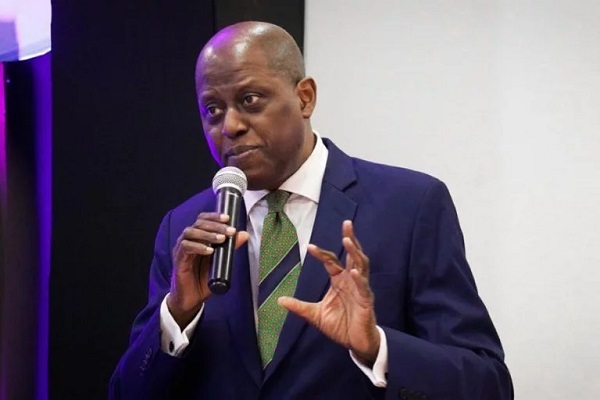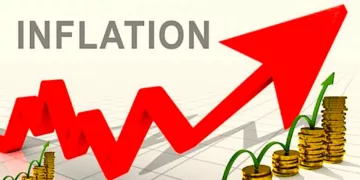It was a crucial event, Monetary Policy Forum 2025, that underscores the Central Bank of Nigeria’s commitment to improving communication, fostering dialogue, and collaborating on the critical issues shaping monetary policy. It was organized by the Central Bank of Nigeria (CBN). The forum with the theme, “Managing the Disinflation Process,” brought together policymakers, the private sector, and civil society operators to drive meaningful change. The aim was to ensure that monetary policy remains forward-looking, adaptive, and resilient.
Inflation erodes purchasing power, discourages investment, and exacerbates inequality. Managing the disinflation process requires a careful balance of policies that mitigate short-term costs while anchoring long-term stability. The CBN is fully committed to ensuring price stability while minimizing adverse effects on growth and livelihoods.
The forum was a focused platform for rigorous intellectual discourse, providing an opportunity to examine monetary policy formulation, implementation, and outcomes. Unlike broader economic conferences, our discussions here are designed to address monetary policy challenges precisely, offering evidence-based insights to enhance policy effectiveness.
And so, it was an opportunity to generate actionable insights. Stakeholders at the forum, including representatives of the International Monetary Fund, World Bank, Nigerian Governors Forum, Federal Ministry of Finance and the Federal Ministry of Budget and Economic Planning agreed that managing disinflation amidst persistent shocks requires not only robust policies but also coordination between fiscal and monetary authorities to anchor expectations and maintain investor confidence. Our focus must remain on price stability, the planned transition to an inflation-targeting framework, and strategies to restore purchasing power and ease economic hardship.
When it was his time to talk to the gathering at Fraser Suites in Abuja, CBN Governor Olayemi Cardoso acknowledged that the past year presented significant challenges, including persistent inflationary pressures exacerbated by global and domestic shocks, ending his remarks with the presentation of a fact sheet of achievements under his watch and the plans to deliver sustainable economic stability by ensuring the alignment of monetary policies with fiscal policies.
Recent data from the National Bureau of Statistics indicate that inflationary pressures persist. As of December 2024, headline inflation stood at 34.80 percent, driven primarily by core inflation, while food inflation showed signs of moderation. Domestic structural challenges, exchange rate pass-through effects, and energy price adjustments continue to exert pressure on prices and economic activity.
The liquidity injections associated with unorthodox monetary policies, particularly since the COVID-19 pandemic, have created a significant overhang. While these measures were intended to cushion immediate shocks, they did not translate into commensurate productivity growth, fueling inflationary pressures and heightened foreign exchange volatility. Excess naira liquidity in the system has amplified demand-driven inflation, further exacerbated by supply-side constraints stemming from structural deficits. These dynamics underscore the importance of a disciplined and coordinated approach to monetary policy to restore stability.
Despite these headwinds, the CBN Governor said “our commitment to price and monetary stability has yielded measurable progress. We have seen relative stability in the foreign exchange market, a narrowing exchange rate disparities, and rising external reserves of over $40 billion as of December 2024.”
Part of its policy interventions, the Monetary Policy Committee of the CBN initiated a tightening cycle using orthodox approaches. Throughout 2024, the Bank implemented several bold policy measures across six MPC meetings, including raising the Monetary Policy Rate (MPR) by a cumulative 875 basis points to 27.50 percent, increasing the Cash Reserve Ratio (CRR) of Other Depository Corporations (ODCs) by 1750 basis points to 50.00 percent, and adjusting the asymmetric corridor around the MPR. Counterfactual estimates suggest that without these decisive policy interventions, inflation could have reached 42.81 percent by December 2024.
At the forum, Mr Cardoso said he is “optimistic that we have turned a corner and that disinflation is within reach.”
However, the authorities must remain committed to bold, coordinated policy measures to consolidate our progress; cleared a backlog of foreign exchange commitments totalling $7.0 billion, restoring market confidence and improving FX liquidity; and lifted restrictions on 41 items previously banned from access to the official FX market, a measure introduced in 2015.
Globally, cautious optimism is emerging around potential improvements in capital flows to emerging markets, as advanced economies transition toward monetary easing. Industry experts believe that Nigeria’s ability to attract these inflows will depend on investor confidence in her domestic reforms, particularly those ensuring macroeconomic stability and delivering positive real returns on investment.
As the country shifts from unorthodox to orthodox monetary policy, Mr Cardoso says the CBN remains committed to restoring confidence, strengthening policy credibility, and staying focused on its core mandate of price stability.
The results are becoming evident—FX liquidity is improving, fostering greater stability in the market. The naira is gradually aligning with market fundamentals, creating a more predictable environment for domestic production, exports, and essential imports.
While challenges remain, Cardoso and his team are confident “that our policies are setting Nigeria on the path to sustainable economic stability.”
On the structural front, CBN’s deputy governor in charge of economic policy, Mr. Muhammad Sani Abdullahi said the bank has intensified collaboration with fiscal authorities to address legacy challenges, particularly those impacting food inflation.
He pointed to a key support in this regard as the release of the stock of 2.15 million bags of fertiizer to the Federal Ministry of Agriculture and Food Security, aimed at boosting food production and stabilizing food prices. He said such measures highlight the importance of addressing supply-side constraints to achieve a sustainable disinflation path and enhance economic resilience.
Minister of Budget and Economic Planning Atiku Bagudu said the federal government has salvaged the situation with improved security across the country, a development he said has resulted in strong productivity in sectors of the economy. Bagudu said Nigeria has more opportunities to increase production, especially in agriculture. “We need to focus more on how we can invest in that (production) elasticity,” he stated.
Also, the Minister of Trade, Jumoke Oduwole urged the authorities to focus on how to ensure that Nigeria becomes an outsourcing of business services.
Beyond monetary policy, the bank undertook critical reforms to strengthen the financial system and ensure macroeconomic stability: unified multiple exchange rate windows to enhance efficiency in the FX market.
The CBN has also launched the WIFI initiative under the National Financial Inclusion Strategy, designed to bridge the gender gap in financial access, empowering women through financial services, education, and digital tools. Just recently, the apex bank launched the Nigeria Foreign Exchange Code, marking a decisive step forward for integrity, fairness, transparency and efficiency in our FX market. Built on six core principles, it represents a binding commitment from the financial community to rebuild trust and inspire confidence.
The reforms are yielding tangible results. For instance, remittances through International Money Transfer Operators (IMTOs) rose by 79.4 percent in the first three quarters of 2024 to $4.18 billion, compared to $2.33 billion in the same period of 2023.
“These reforms reflect our commitment to creating an enabling environment for inclusive economic development,” the Governor stated while also acknowledging that achieving macroeconomic stability requires sustained vigilance and a proactive monetary policy stance.





